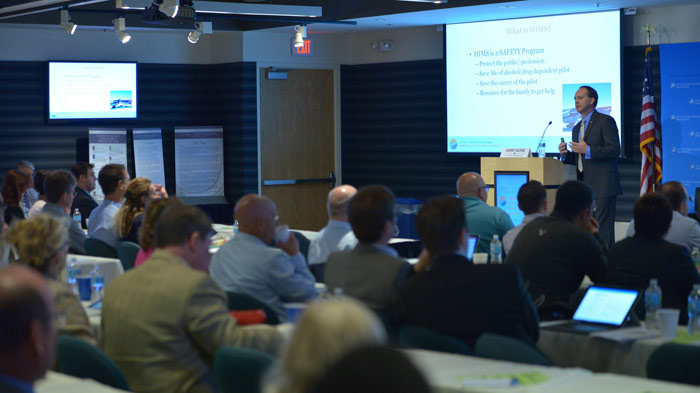Pilot Assistance
By F/O John Taylor (United), Air Safety Organization Pilot Assistance Chairman

The Pilot Assistance Forum showcases the work of the Air Safety Organization’s Pilot Assistance Group, which helps pilots who are facing difficulties in their personal or professional lives that could affect their job performance.
The most important safety feature of any airline operation are well-trained, highly experienced, and well-rested professional pilots. Ensuring that ALPA pilots get the attention and resources they need when concerns arise about their health and welfare is the mandate of the Air Safety Organization’s (ASO) Pilot Assistance Group. Our organization provides confidential support to ALPA members experiencing difficulties with any aspect of their personal or professional lives that could affect their job performance. Our dedicated network of pilot representatives stands ready to help 24 hours a day, seven days a week.
From a functional standpoint, think of Pilot Assistance as an umbrella organization, coordinating the activities of its various branches of service/expertise. These include Aeromedical, which helps members with medical certification issues; the Human Intervention Motivation Study (HIMS), which deals with chemical-addiction and substance-abuse issues; the Critical Incident Response Program (CIRP), which addresses stress reactions that can result from accidents or incidents; Professional Standards, which responds to concerns of a professional or interpersonal nature; and Canadian Pilot Assistance, which offers a separate set of programs tailored to the meet the needs of our Canadian members.
In addition to answering members’ questions, these five disciplines host conferences and training events throughout the year and engage with other aviation industry stakeholders to share information and establish new networks of support.
Last month, we presented the 2018 HIMS Advanced Topic Seminar in Memphis, Tenn., to discuss the latest practices and trends in treatment and recovery. This month, Professional Standards is holding a conference in Seattle, Wash., and Canadian Pilot Assistance is offering its basic training course in Toronto, Ont. Later this year, Canada Pilot Assistance will present its “Tripartite” Workshop in Toronto, and CIRP chairs will convene for training at ALPA’s Herndon, Va., Conference Center.
Despite its fundamentally responsive nature, Pilot Assistance is also a proactive and forward-thinking organization as evidenced by its latest initiative called the Pilot Peer Support (PPS) program, which will be rolled out shortly. Capt. Joe DePete, ALPA’s first vice president and national safety coordinator, is spearheading this effort with the support of Pilot Assistance and ALPA staff. DePete served on the Pilot Fitness Aviation Rulemaking Committee (ARC) following the Germanwings Flight 9525 tragedy. From the ARC’s findings, ALPA determined that a peer-support mechanism dedicated solely to helping pilots with stresses that originate outside the normal work environment could be beneficial.
A PPS training program is currently being developed, and ALPA’s pilot groups may opt to coordinate their own in-house PPS hotlines using their own ALPA-trained peers. Alternatively, pilots will also be able to call a central Pilot Assistance hotline to speak with a trained peer on a national list once the program is implemented.
While senior Pilot Assistance representatives are listed in the ASO Resource Directory in this issue, I’d like to acknowledge a recent change to the organization. F/O Ellen Brinks (Delta) is the new Aeromedical chair, filling the vacancy I created when I became the Pilot Assistance chair. Brinks brings leadership experience to the job, having previously served as our Aeromedical vice chair.
I also want to extend a special thanks to Capt. Jerry McDermott (United), my predecessor and a longtime Pilot Assistance advocate. Jerry, you have been a true ALPA asset, and we’ll miss your knowledge and keen insight.
Due to the confidential nature of Pilot Assistance work, it’s impossible for me to highlight the many successes of this instrumental and far-reaching program or talk about the pilots who are flying today thanks to this important resource. We understand that everyone experiences events in their lives that require special attention. Through peer-to-peer support, Pilot Assistance provides these individuals with the aid they need and a clear path to recovery.

